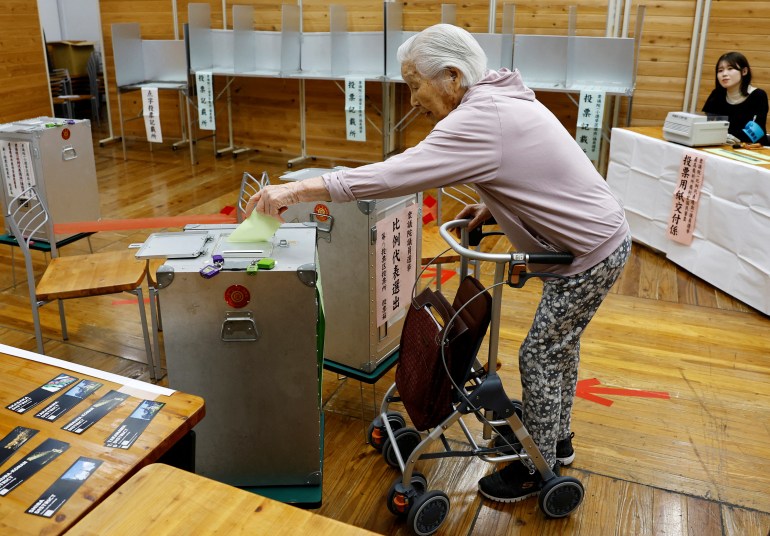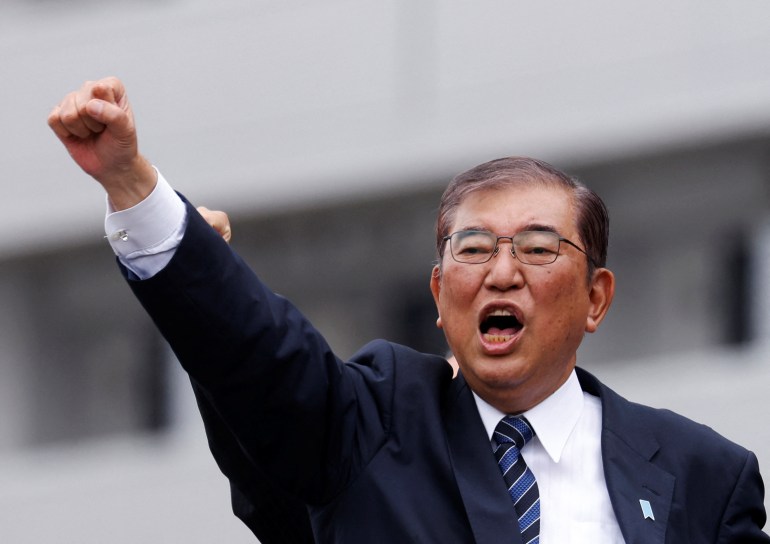NHK poll says ruling LDP and a junior coalition partner may win between 174 and 254 of the 465 seats in the lower house of parliament.
Japan’s ruling coalition may fall short of a parliamentary majority, exit polls show, raising uncertainty over the make-up of the government of the world’s fourth-largest economy.
A poll by national broadcaster NHK on Sunday showed the Liberal Democratic Party (LDP), which has ruled Japan for almost all of its post-war history, and junior coalition partner were set to win between 174 and 254 of the 465 seats in the lower house of Japan’s parliament.
The main opposition Constitutional Democratic Party of Japan (CDPJ) is predicted to win 128 to 191 seats. The outcome may force the LDP or CDPJ into power-sharing agreements with other parties to form a government.
A poll by Nippon TV showed the ruling coalition would win 198 seats to the CDPJ’s 157, both well short of the 233 seats needed to reach a majority, as voters punished Prime Minister Shigeru Ishiba’s party over a funding scandal and inflation.
“It was a tough fight for the LDP,” Shinjiro Koizumi, the LDP’s election chief, told NHK.
It was unclear from the projections whether Prime Minister Shigeru Ishiba would still be able to secure a majority in parliament alongside its long-term coalition partner, the Komeito party.
Ishiba, 67, took office on October 1, replacing his predecessor Fumio Kishida who resigned after an outcry over slush fund practices among LDP legislators. Ishiba immediately announced a snap election in hopes of shoring up more support.
In his final campaign speeches on Saturday, Ishiba apologised for his party’s mishandling of funds and pledged “to restart as an equal, fair, humble and honest party”. He said only the LDP’s ruling coalition can run Japan with its experience and dependable policies.
But voters in the world’s fourth-largest economy have been rankled by rising prices and the fallout from a party slush fund scandal that helped sink previous premier Fumio Kishida.
“I made my decision first and foremost by looking at their economic policies and measures to ease inflation,” Tokyo voter Yoshihiro Uchida, 48, told AFP on Sunday. “I voted for people who are likely to make our lives better.”

Local media speculated that Ishiba could…

